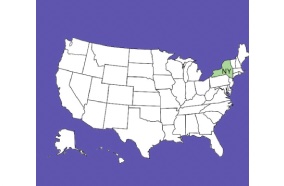In a recently issued “Important Update” available here, the New York Office of Cannabis Management made this bold pronouncement:
“The Office of Cannabis Management has become aware of the sale of high THC hemp derived products marketed as meeting the definition of hemp, having a delta-9 THC content below 0.3% THC. These high THC products are a public health risk containing intoxicating quantities of THC, sold without regulatory measures or safeguards to protect consumers, prevent youth use or accidental intoxication. High THC products are regulated and sold solely through the Office’s Adult-Use Cannabis and Medical Cannabis Programs.
Pursuant to Cannabis Law 104(4), the Office may take necessary steps to protect human health and safety, including having the authority to “(a) regulate and prohibit specific ingredients, excipients, methods used in processing cannabinoid hemp, hemp extract, and products derived therefrom; and (b) prohibit, or expressly allow, certain products or product classes derived from cannabinoid hemp or hemp extract, to be processed.
Neither the cannabis law nor applicable regulations allow for sale of high THC hemp derived products in the cannabinoid hemp program.
An emergency regulation package will be issued shortly identifying permissible milligram limits of THC in cannabinoid hemp products.” (emphasis added)
While this might seem discouraging to retailers of cannabinoid hemp products in New York, a closer examination of New York’s Cannabis Law (CL) indicates these products, regardless of their psychotropic effects, are lawful as long as they do not exceed 0.3% delta-9 THC.
Pursuant to CL § 90, subsection 4, “hemp” means: “the plant Cannabis sativa L. and any part of such plant, including the seeds thereof and all derivatives, extracts, cannabinoids, isomers, acids, salts, and salts of isomer, whether growing or not, with a delta-9 tetrahydrocannabinol concentration (THC) of not more than three-tenths of a percent on a dry weight basis. It shall not include “medical cannabis” as defined in section three of this chapter.“
Subsection 5 of the CL defines “hemp extract” as: “all derivatives, extracts, cannabinoids, isomers, acids, salts, and salts of isomers derived from hemp, used or intended for human consumption, for its cannabinoid content, with a delta-9 tetrahydrocannabinol concentration of not more than an amount determined by the board in regulation. For the purpose of this article, hemp extract excludes (a) any food, food ingredient or food additive that is generally recognized as safe pursuant to federal law; or (b) any hemp extract that is not used for human consumption. Such excluded substances shall not be regulated pursuant to the provisions of this article but are subject to other provisions of applicable state law, rules and regulations.“
Finally, subsection 2 of § 90 of the CL states that “cannabinoid hemp” means: “any hemp and any product processed or derived from hemp, that is used for human consumption provided that when such product is packaged or offered for retail sale to a consumer, it shall not have a concentration of more than three-tenths of one percent delta-9 tetrahydrocannabinol.“
In light of the above it appears that cannabinoid hemp products are, in fact, lawful in New York regardless of their intoxicating effects provided they do not exceed 0.3% delta-9 tetrahydrocannabinol. Keep in mind that these products must be sold by state-licensed Cannabinoid Hemp Retailers.
The New York Cannabis Control Board, which oversees the Office of Cannabis Management, is permitted by law to prohibit certain products or classes of products derived from cannabinoid hemp. At this point in time, however, it remains unclear how it would prohibit these products given they rightfully satisfy the definitions set forth in the Cannabis Law. For this reason, it is imperative to follow any updates or bulletins issued by the New York Office of Cannabis Management and consult with an attorney to determine whether the updates impact your business.
Important note: The attorneys at Kight Law Office PC are not licensed in NY and the views expressed in this article should not be construed as legal advice.
April 26, 2023
This article was written by attorney Philip Snow. Kight Law represents hemp businesses in the US and throughout the world. To schedule a consultation please click here and mention this article.




